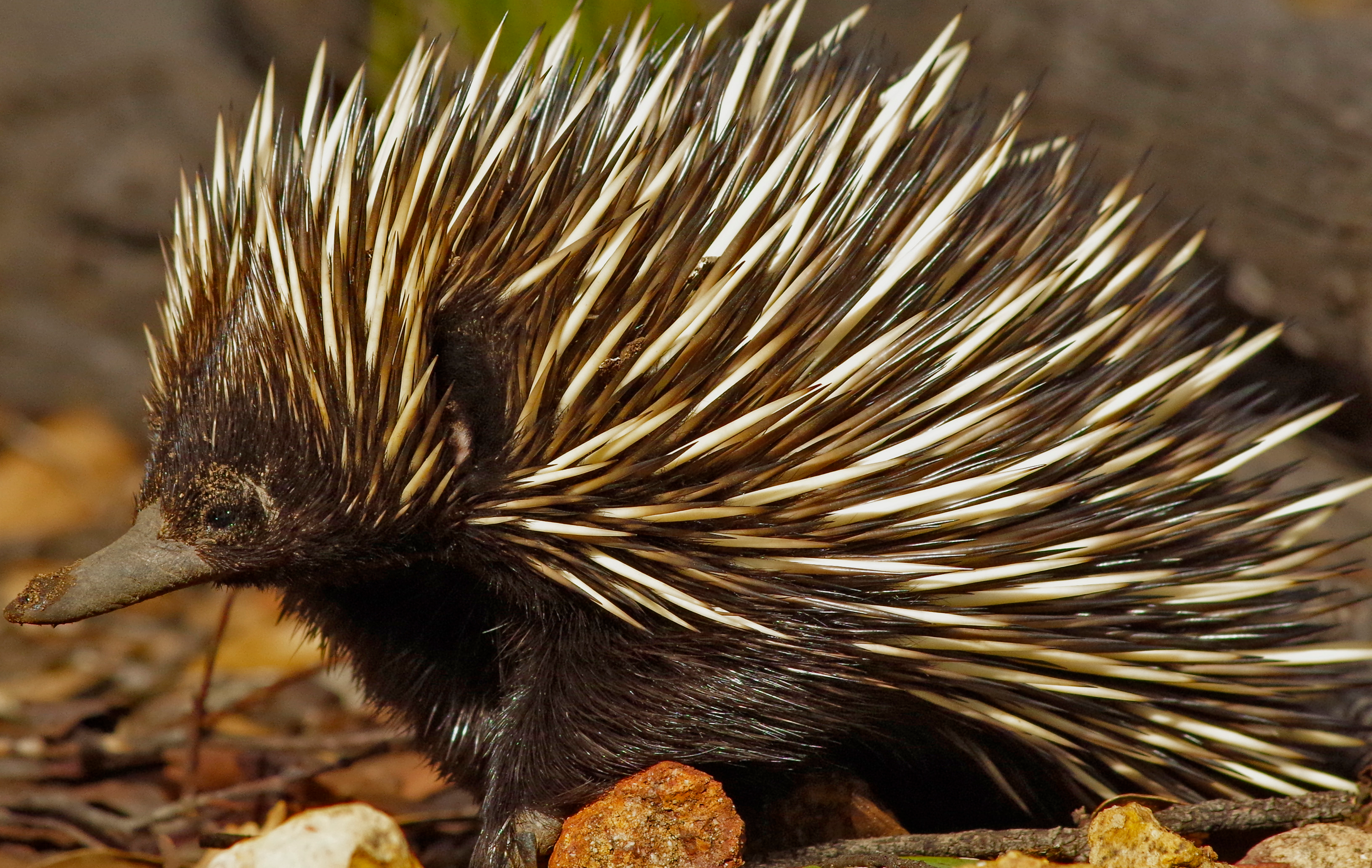Zoologists have recorded the adorable cooing sounds echidnas occasionally make during the mating season, as well as some others that might be described as grunts. This comes as something of a surprise since the spikey monotremes were previously thought to make no sounds besides a little snuffling and wheezing as they walk. Combined with the recent discovery that platypus growl, this indicates the use of vocalization to communicate goes back to the very base of the mammalian line.
Platypus and echidnas diverged from all other mammals very early, 100-200 million years ago, and have retained traits such as egg-laying ever since. Consequently, those characteristics they share with other mammals are thought most likely to have been present in the last common ancestor, right near the base of the mammal family tree, rather than evolving independently in both lines.
Until recently, vocal communication was not thought to be among them. To the extent platypuses and echidnas make sounds, they were thought to be inadvertent, like the snuffling echidnas make as they try to sniff out their ant prey. Echidnas also wheeze a little, but you try trotting when your hind legs point backward.
However, Dr Christine Cooper of Curtin University is part of a team that have been studying echidnas at Dryandra National Park, Western Australia for 20 years. She told IFLScience: “When we first heard echidnas making sounds we thought we were hearing things until two of us heard it at once.” Cooper and colleagues have now managed to capture a few of these noises. There is no doubt they are real, and quite diverse, with some sounding dove-like whereas others resist categorization. They’ve also caught an echidna snoring, just for fun.
Echidnas are certainly not a talkative bunch. Despite many hours spent in the company of 200 of the spiny anteaters, the authors have only heard them vocalizing a handful of times, and recorded three.
“Careful analysis of those cooing and grunting sounds showed echidnas are capable of vocalizing, aligning them with most other mammals in their use of acoustic communication,” Cooper said in a statement.
All the sounds were in the mating season, which at Dryandra, happens in August, opposite to when they’re blowing bubbles to keep cool. So case closed, it’s a mating call? Not necessarily, Cooper noted. “The echidnas made the sounds when they were alone or with another echidna,” she said. What the point of sounding off alone is, we don’t know. “We don’t know what [the calls] mean,” Cooper told IFLScience.
Some sounds definitely came from male echidnas. On other occasions, vocalizations were detected from echidna trains, where a group of males follow a female, and Cooper told IFLScience she could not tell if the leader or her fan club were responsible.

When your food is ants sometimes it’s hard to keep your nose clean.
Image Credit: Christine Cooper
It might seem to be a lot of evolutionary effort to develop the capacity to vocalize and then use it so seldom. However, Cooper told IFLScience that this just adds to evidence the capacity is very ancient. “They have it because the common ancestor had it,” she said. Apparently, they use it just enough that it hasn’t been lost over millions of years.
Cooper and colleagues were not the first to discover the capacity. Dr Peter Pridmore mentioned it in his honors thesis in 1970. Although this was never published, Cooper found references to it in a few publications, but even most echidna researchers had no idea. Pridmore is still studying Australian wildlife and sent Cooper a copy of his thesis, expanding the very limited accounts of echidna vocalizations the team could explore.
The study is published in the Journal of Zoology.
Source Link: Echidnas Recorded Making Dove-Like Calls And Strange Grunts In Adorable First